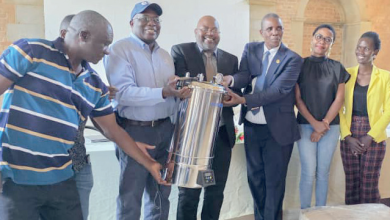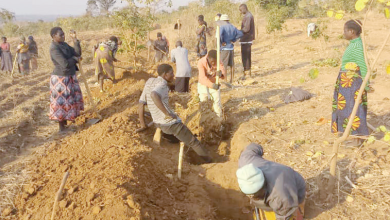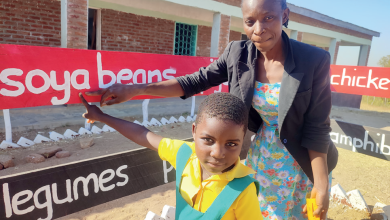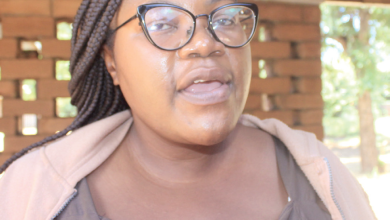Zomba minting gold from waste
When most people think of waste, they imagine overflowing waste bins, clogged drains and, in most cases, the foul and unpleasant smell of decay.
Yet, in an innovative shift for Zomba City, waste is becoming one of the city’s most valuable resources, a gold that has always been there in plain sight, with many not giving it a second look.

This shift has been achieved by Waste Advisers, a European Union-funded project which has been empowering communities, schools, informal waste pickers, and private garbage collectors, in collaboration with Zomba City Council, teaching them ways to monetise garbage through the principles of the circular economy.
A circular economy is an economic system that is based on the re-use and regeneration of materials or products, especially as a means of continuing production in a sustainable or environmentally-friendly way.
While Waste Advisers’ reach is broad, Sadzi Community Day Secondary School (CDSS) is one of the schools in the city that has embraced the circular economy, not just in theory, but also in practice.
Through technical advice and support from Waste Advisers and Zomba City Council, students at Sadzi are separating waste at source, managing toilets, and even producing organic manure which they use in the school garden, and they also sell to teachers and the community.
Inspired by the principles and benefits of the circular economy, Sadzi CDSS head teacher Ruth Kalinga Chirwa, explains how she never looked back after learning how her school could make money from waste.
“When Waste Advisers engaged us, I saw an opportunity that would help transform our school, money-wise, while changing the mindset of our students on how to manage waste effectively,” she explains.
Adds Chirwa: “We ask the students to bring torn clothes, charcoal ashes, and chicken droppings, which we use to make various products such as door mats, mops, and compost manure for sale.
“We also harvest urine from the urinals in the boys’ toilets, which we use as a component in making manure. Additionally, we collect biodegradable and non-biodegradable waste separately so that we can use each type of waste effectively.”
Full of joy and contentment, the head teacher testifies how, in 2024, the school made a profit of over K2 million through selling manure, mops, door mats, and vegetables. Among other things, the money was used to pay school fees for needy students.
“Although we started late, we produced about 20 bags of manure, which were sold at K60 000 each. We also made a substantial profit from our vegetable yields.
“This year, 2025, we want to start early so that we produce more. These are the benefits of the circular economy,” Chirwa continues.
According to her, the circular economy has not only helped them make extra money for the school, it has also promoted cleanliness, shaping the students’ perspectives on how they view waste.
One such student is Form One learner Bridget Mambera, who shares how she and her fellow students have developed a positive stance on waste.
“Every time I see waste in any form, I see the possibility of making money. I do this not only at school but also at home. I have also learned to separate waste at home so that I can make organic manure for my parents,” says Mambera.
She attests that the skills she has acquired will go a long way in providing a sustainable livelihood for her family, and that it will also help protect the environment.
Another school that is trailblazing the circular economy is Zomba Catholic Secondary School (ZCSS) where, besides making compost manure, students are also making briquettes from paper waste.
The school’s Wildlife and Waste Management Club matron Fortune Museyiwa expresses utter pleasure with the acquired circular economy skills, saying it is a game-changer in managing waste at the school and protecting the environment.
“We no longer have to worry about the hassles disposing of waste here at our school, because we use every type of waste like paper, tree leaves, and food leftovers to make compost manure and briquettes,” she explains.
“We also have a compost manure site, where our students make manure, which we use in the school’s vegetable garden. Besides, we also make briquettes, which we hope, with time, we will be able to produce in large quantities for cooking,” adds Museyiwa.
According to her, circular economy principles are the answer to protecting the environment and avoiding disasters.
As the quest for a Zomba City that is clean and environmentally safe continues, Waste Advisers have also provided Mpondabwino and Mpunga markets with garbage separators.
Additionally, they incentivise informal waste pickers by giving them equivalent of what they have made from sales of waste.
As the city is slowly embracing environmentally friendly initiatives like the circular economy, Linda Mwamondwe, the projects officer for Waste Advisers, is optimistic that as the project ends in July 2026, what has been embedded in the hearts of the people of Zomba will be practised beyond the project’s expiry date.
“We believe that the knowledge we have imparted to the communities will be sustained so that we have a Zomba that is clean and environmentally safe, while maintaining substantial cash inflow among the members of the communities,” says Mwamondwe.





